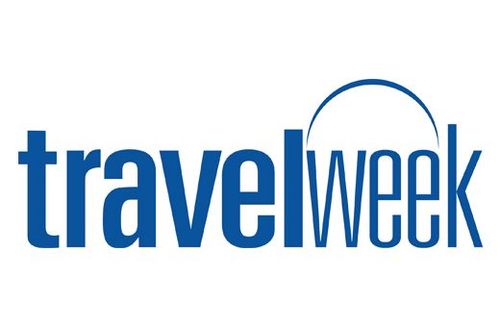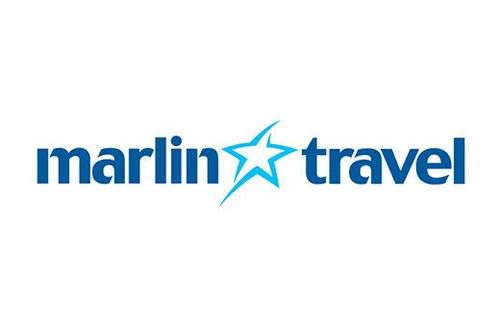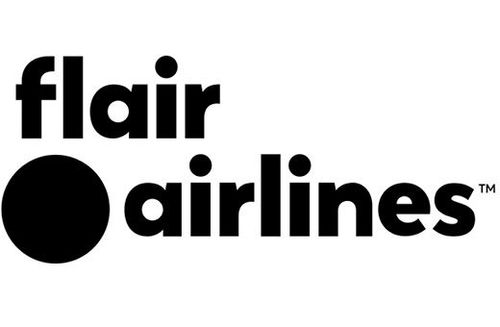Where travel agents earn, learn and save!
News / The 5 AI tools every travel agent should be using – and the ones they should avoid
Here are the recommendations for 5 AI tools that every advisor should be using!

It’s safe to say that Dan Christian is a bit of a techie.
With over 20 years of experience, he’s led digital initiatives at Carlson Wagonlit and Lonely Planet, drove global marketing and technology for G Adventures, and spent nearly a decade at The Travel Corporation where he spearheaded the digital transformation of 40 distinct travel brands.

Dan Christian
Now, he’s the CEO of Acceleration Team, a growth-focused advisory firm he founded in 2022 that specializes in travel, tourism and hospitality, as well as host of the ‘Travel Trends’ podcast, which further solidifies his reputation as a tech expert in the travel space.
So, who better than Christian to advise travel advisors on how to navigate the often confusing and overwhelming landscape of AI? Though we’re only at the start of the AI revolution, artificial intelligence is already changing the travel landscape “with its potential to analyze vast amounts of data and personalize experiences,” says Christian. Steadfast in his belief that AI is going to “transform every industry,” including travel, which he says is one of the largest and most dynamic, Christian tells Travelweek that artificial intelligence is reshaping how businesses operate – and how travellers plan and enjoy their journeys.
First, end-to-end personalization knows no bounds with the help of AI. “Imagine receiving custom travel itineraries that automatically include accommodations, transport, dining and sightseeing options based on your unique preferences, all while staying within your budget,” says Christian. “AI will enable businesses to act not just as service providers but as expert travel consultants.”
Next, AI-driven AR (Augmented Reality) and VR (Virtual Reality) tools will allow travellers to explore destinations, hotel rooms and experiences digitally before even making a booking. “These immersive experiences will give customers greater confidence in their choices, reducing misaligned expectations upon arrival,” adds Christian.
In addition, AI is making way for smarter virtual travel assistants that go beyond just handling travel logistics. “These assistants will deliver real-time advice on directions, traffic updates, local hot spots and even cultural etiquettes, enhancing the traveller experience every step of the way,” he says. A perfect example of this, adds Christian, is iWander.co, an AI-powered travel companion that has already partnered with City Sightseeing, an open-top, sightseeing tour bus operator.
“This enables travellers to jump off the bus and enjoy a walking tour with an AI guide, extending the customer experience and providing an entirely new line of business for travel companies that want to offer digital AI-powered experiences,” says Christian. “There is an exciting future here, given that today only 3% of guests to a destination take a walking or guided tour, which means there is opportunity to tap into the other 97%. It’s just the beginning and this technology is opening up new ways to travel, which is really exciting.”
Where Does This Leave Travel Advisors?
The explosion of AI-powered tools has undeniably shifted the way consumers research, plan and book travel, which begs the question: Where does this leave travel advisors?
According to Christian, with AI platforms offering instant recommendations, flight comparisons and even personalized itineraries, it’s natural to question the relevance of advisors in this evolving landscape. However, their story is far from one of obsolescence.
“Instead, AI is transforming the role of travel advisors, sharpening their value in ways technology alone simply cannot replicate,” he says.
For example, Christian says AI tools can struggle with intricate travel plans that involve multi-destination trips, unique requests or unclear preferences. “Travel agents thrive in this environment, leveraging their knowledge and creativity to craft tailored itineraries with a personal touch,” he says.
Also, though AI is now getting involved in automating travel alternatives in the event something goes wrong, whether it’s a cancelled flight, a missed connection or an overbooked hotel, Christian says that it still doesn’t measure up to a travel advisor with industry connections who can resolve issues quickly, advocate on behalf of their clients and ensure minimal disruptions. “Humans have that unique quality called empathy,” he notes.
Even more, travel agents often have access to deals, upgrades and experiences that AI platforms can’t necessarily access or provide. Plus, consumers often need to cross-reference multiple AI platforms or sift through endless reviews to finalize their travel choices, which takes up time. And, as Christian notes, AI personalization focuses on past user data, often missing more subtle factors like a client’s aspirations, cultural experiences and under-the-radar destinations. “Seasoned travel advisors excel at infusing trips with authentic, thoughtful touches that elevate ordinary vacations into unforgettable experiences,” he says.
The 5 Must-Use Ai Tools
When it comes down to it, AI is here to stay, whether we like it or not. But instead of viewing it as a threat, says Christian, travel professionals should rethink it as a powerful ally.
“By integrating AI-driven research tools into their processes, advisors free up time to focus on client relations, itinerary customization and problem-solving. Advisors who adapt and harness AI will find themselves positioned as indispensable experts offering the best of both worlds: the efficiency of modern technology paired with the sophisticated human touch only a skilled professional can deliver,” he says.
Here are Christian’s recommendations for 5 AI tools that every advisor should be using:
- Synthesia: This powerful AI video platform allows users to create studio-quality videos complete with AI avatars and voiceover in just minutes. “It’s ideal for travel advisors who want to create engaging destination videos or promotional content for their clients,” says Christian. “You can create professional-quality videos without any prior video editing experience.” https://www.synthesia.io/
- Mindtrip: This itinerary planning tool allows users to build travel itineraries based on their preferences with photos, maps and reviews. Says Christian: “It’s now being utilized for B2B partners including DMO’s. This can be helpful for idea generation and will give you a sense of what is empowering consumers today.” https://mindtrip.ai/
- Sion Central: A comprehensive AI tool for travel agencies that enables commission tracking, payment processing, auto-reconciliation, reporting and analytics and more. “This one is great for host agencies and Independent advisors so they can track their commissions and ensure they’re getting paid timely by suppliers and partners,” says Christian. https://www.sioncentral.com/
- The Trip Boutique: This tool serves as a personal AI assistant that facilitates client onboarding, transforms raw information into smart profiles, builds itinerary proposals, automates client communication and more. “This is ideal for advisors and agencies that would benefit from an automated CRM system,” says Christian. “It builds out custom itineraries and assists with the back-office flow and follow-up.” https://www.thetripboutique.ai/travel-advisors
- Jasper: Boasting the “biggest library of AI Marketing Apps,” Jasper offers over 80 Apps spanning every marketing function. Tasks include writing blog posts, composing product descriptions, Instagram captions and social media ad copy, optimizing websites’ SEO, crafting promotional videos and more. A favourite tool for Christian, he says: “Jasper’s AI-driven suggestions save me valuable time by generating compelling headlines, refining tone and style, and tailoring content specifically to the target audience. It has become an essential tool in my daily workflow, helping me tackle a wide range of marketing tasks.” https://www.jasper.ai/
The Ones To Avoid
It’s a veritable sea out there of AI-powered tools and platforms, enough for a travel advisor to drown in. Save time by avoiding those that won’t serve you well or shave time off your workload, or will bog you down with confusing jargon or inefficiencies, says Christian. These include overly generic chatbot software.
“Basic, off-the-shelf customer service bots often fail to handle the nuanced and highly personalized needs of travellers. Travel is an industry built on customization, and clients typically expect tailored recommendations, real-time itinerary adjustments or detailed knowledge of destinations. Without capabilities for deep integrations with travel-specific platforms like Amadeus or Sabre, these bots can’t deliver the high level of service clients expect from a professional travel advisor,” he says.
Christian also notes that many users of these generic AI tools report frequent misunderstandings from the chatbot, leading to customer frustration and diminishing trust.
“For travel agencies that rely heavily on building long-term relationships with clients, deploying a tool that doesn’t meet expectations can harm their brand’s reputation,” he adds.
Earlier this year, Travelweek – in collaboration with TravelBrands – launched a year-long webinar series for travel advisors called ‘Unleashing AI’s Potential for Travel Agents.’ The next installment is scheduled for Dec. 11 at 1:00 p.m. To register, click here.










